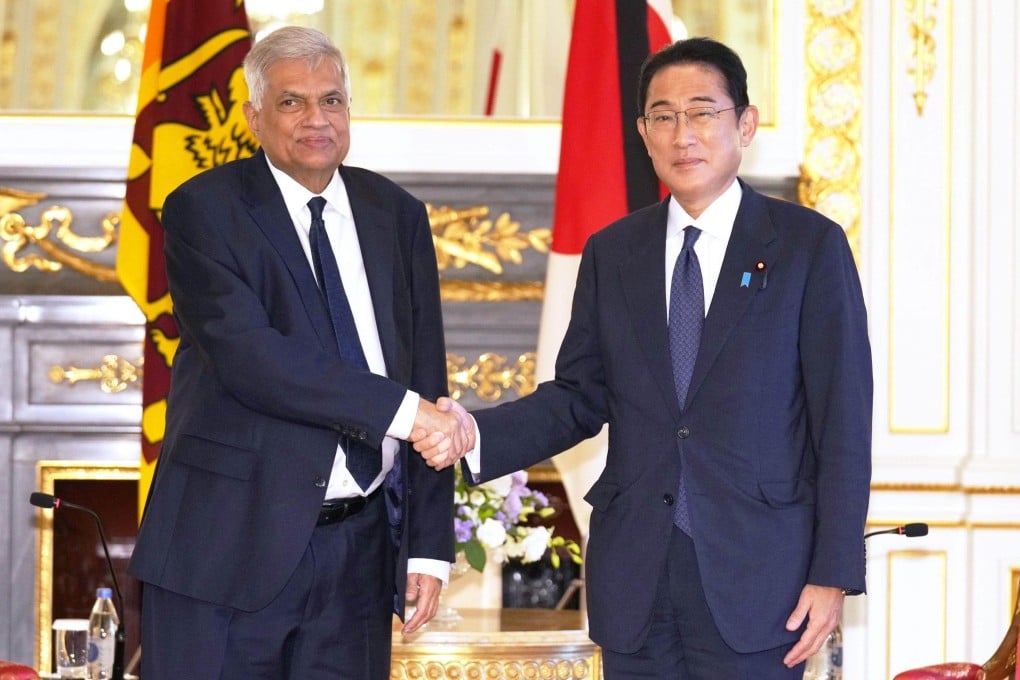‘Ball in Sri Lanka’s court’ as Japan seeks to deepen ties in bid to counter China’s Indo-Pacific influence
- Sri Lanka’s 2020 decision to drop a light rail project financed by Japanese companies led to friction between the countries, amid Colombo’s pivot to China
- Japan has become more ‘astute’ in its approach to Sri Lanka, given its interest in a rules-based Indo-Pacific region and countering Chinese influence in the Indian Ocean

Sri Lanka’s vital location in the Indian Ocean and Japan’s rivalry with China over Indo-Pacific influence are strong incentives for Tokyo to mend bilateral relations with Colombo strained by the cancellation of a major infrastructure project, experts have said.
“Japan’s prime minister, foreign minister and finance minister have reached out to Sri Lanka in a consistent manner in recent months,” said George I.H. Cooke, a historian and academic who formerly worked for Sri Lanka’s diplomatic service. “The ball is in Sri Lanka’s court to deepen the connectivity in a meaningful way.”
In 2020, the Gotabaya Rajapaksa regime in Sri Lanka abruptly halted a US$2 billion light rail project (LRT) – proposed as a solution for Colombo’s congested roads – financed by Japan International Cooperation Agency (JICA), citing the project’s high costs as the reason.

The decision led to diplomatic friction between the two traditionally close countries that continued to grow amid Sri Lanka’s deepening economic crisis.
Since Ranil Wickremesinghe took over as president in July 2022, the two countries have attempted to rekindle ties and restart talks on the LRT project. Following talks that began in February 2023, Colombo agreed to pay about US$3.4 million as compensation to a consultancy led by Japanese firms.
Analysts see Tokyo’s strategic interest in Indo-Pacific maritime cooperation, as well as its concern about China’s influence in the region, as playing a key role in the revival of its relationship with Colombo.
Despite the cancellation of the LRT project, Tokyo had been “more astute” in its approach to Sri Lanka, said Punsara Amarasinghe, a senior lecturer at the General Sir John Kotelawala Defence University in Sri Lanka. This was because Japan wanted to establish a peaceful Indo-Pacific region “based on rule-based international law”, but saw China as a big obstacle, Amarasinghe said.
